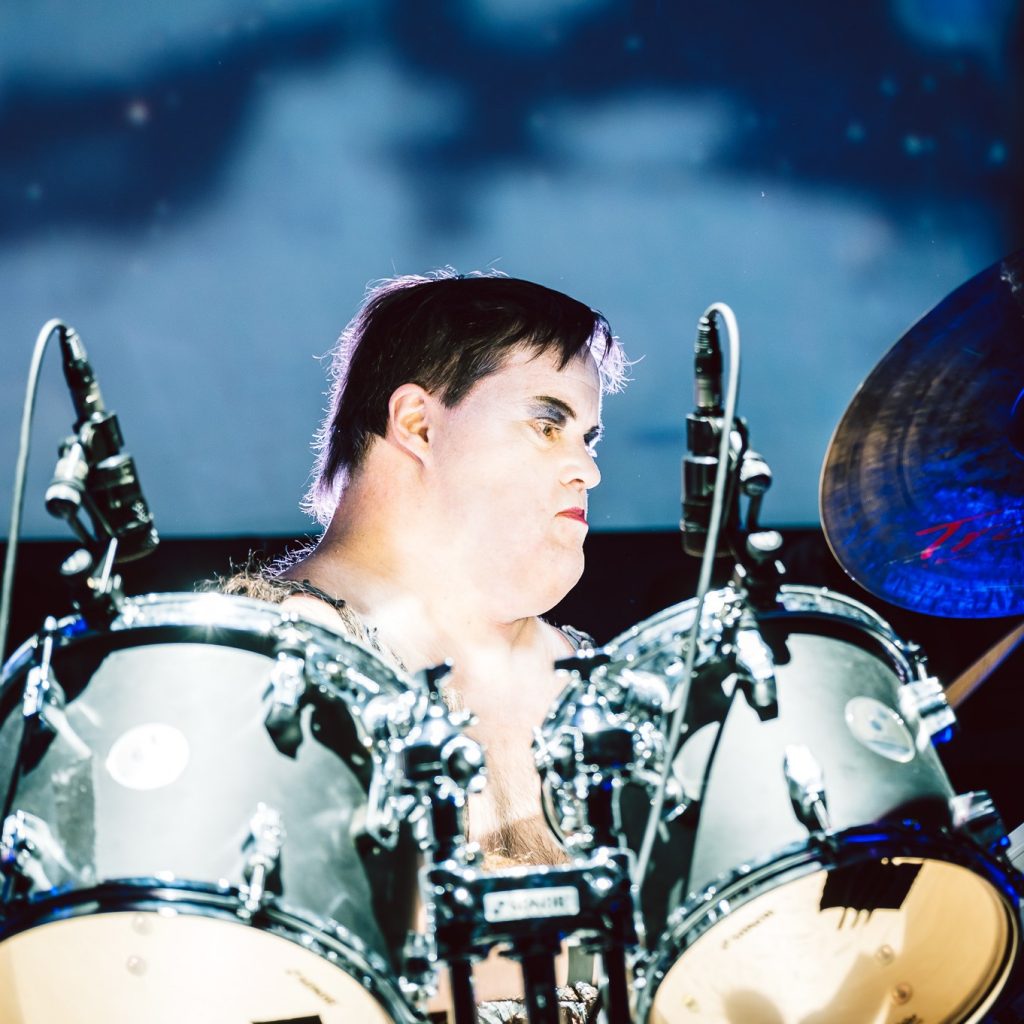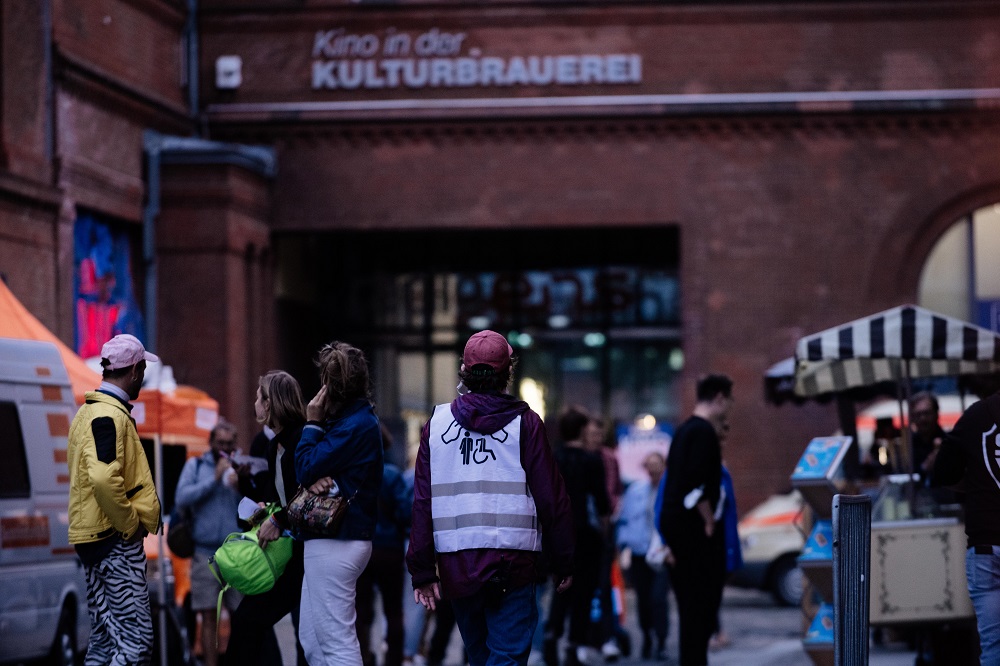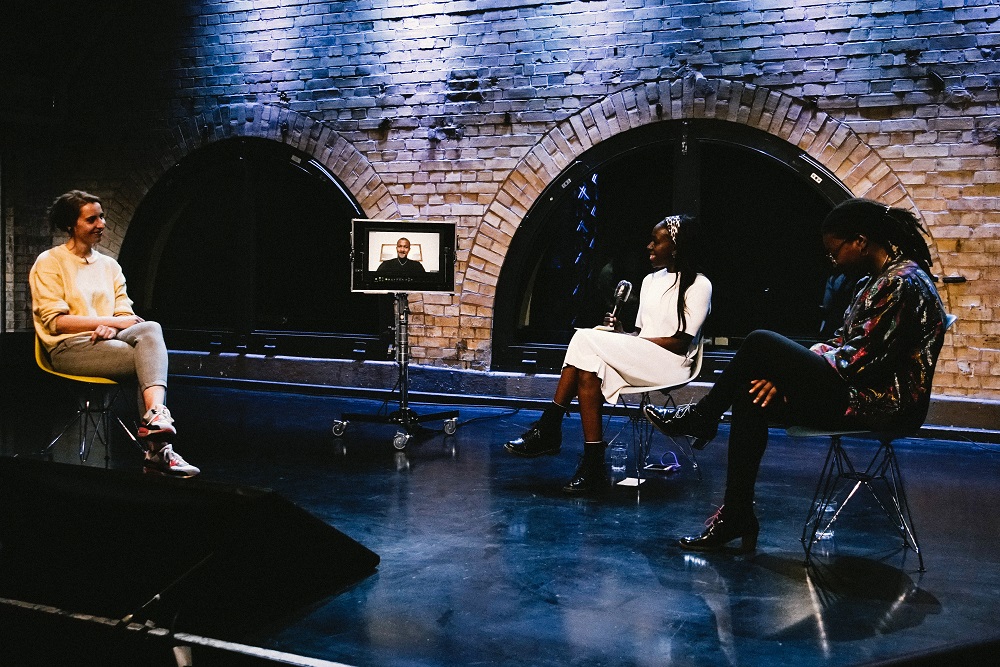WHAT DO WE MEAN BY DIVERSITY?
Diversity refers to variety in cultures and identities. Musicboard embraces diversity with an appreciative and conscious approach while also addressing and reducing structural exclusion and forms of discrimination. Musicboard considers diversity to be an essential factor in a vibrant pop culture – a basis for new and innovative artistic expressions.
WHAT DO WE MEAN BY ACCESSIBILITY AND INCLUSION?
Accessibility means unrestricted and self-determined access for all people, regardless of their abilities, in various realms of life. Inclusion means welcoming participation in society from all people, regardless of individual needs, gender, social or economic conditions. Policies for accessibility and the promotion of inclusion are both considered in Musicboard’s funding operations. Musicboard strives to:
- strengthen the active participation of people with disabilities or impairments in the production of art and culture.
- strengthen the participation of people with disabilities or impairments as cultural consumers.
- communicate and implement accessibility as a quality characteristic of cultural venues.
WHAT ROLES DOES DIVERSITY PLAY IN OUR FUNDING?
Diversity in funding is pursued both through content-related funding priorities – such as the promotion of women, non-binary and queer people, BIPOC (Black, indigenous, people of colour) and people with disabilities – and through specific funding regulations.
Musicboard places great importance on the funding of projects with diverse perspectives and platforms that oppose discrimination against marginalised identities and groups in the field of pop music. Examples of this are HI FREAKS by the RambaZamba Theater, Inklusion rockt! by the Handiclapped association, the event series Dümtek by the Berlin collective of the same name, PANDAwomen by the PANDA association, and Bohemian Strawberry’s Ich Brauche Eine Genie.
Furthermore, Musicboard links funding to concrete requirements for recipients that raise awareness for diversity and take action. In our Festival Funding, Pop im Kiez and Karrieresprungbrett programmes, applicants are required to implement gender-balanced and diverse line-ups as well as accessibility policies in their projects.
Accessibility policies can vary and, depending on the project, can be geared towards different target groups – for example:
- signposting barrier-free entrances, washrooms or escape routes at an event venue for people with mobility impairments
- dproviding information in simple language on the website of a project for people with reading difficulties
- subtitling online talks and panels in English and German for people with hearing impairments
It is essential to involve experts in the planning process and to actively address the target group of people with disabilities in public relations work. Personnel and material costs related to accessibility can be applied for in Musicboard’s project funding.
In addition to funding, Musicboard offers qualification programmes that educate and train funding recipients and other interested parties, for example, on accessibility in planning events. To this end, Musicboard has initiated a pool of advisors to provide experts on different topics. The Musicboard website also provides an overview of specialised counselling centres and guides that offer further information on awareness, anti-discrimination and accessibility in the design of spaces and events.
WHAT INTERNAL POLICIES DOES MUSICBOARD HAVE IN PLACE TO PROMOTE DIVERSITY?
Musicboard ensures that its own juries and committees are gender-balanced, diverse and informed on the topics emphasised by Musicboard. For the scholarships and residency programmes, in which musicians and bands are directly funded, the jury’s decisions must include at least 50 percent women, non-binary and queer persons.
Musicboard also regularly collects data from funding recipients to ensure diversity awareness, which gets published in our annual reports.
The Musicboard team undergoes continued training in order to broaden the intersectional perspective in their own work and prompt critical self-reflection. As part of a complaint management system, neutral experts are consulted in individual cases of discrimination in the context of Musicboard’s funding activities, in order to ensure that the affected persons are treated appropriately.
Musicboard holds the view that affected persons are experts in their own right and accordingly should be the ones to represent their perspectives. We work regularly with initiatives such as Music Women* Germany, dem Sozialheld:innen, the German Deaf Association, the Clubcommission Berlin, Handiclapped and Diversity Arts Culture as the Berlin project office for diversity development.
POP-KULTUR FOR EVERYONE
Pop-Kultur is an interdisciplinary and inclusive music festival organised by Musicboard Berlin. Designed as space for everyone, Pop-Kultur uses artistic formats to connect cultural identities and to highlight diversity in creative ways. As a best-practice festival, it aims to create awareness and set new standards for accessibility and inclusion in the international pop-cultural festival landscape. Through a barrier-free and carefully designed infrastructure, Pop-Kultur intends to be a safe environment, especially for people with disabilities. You can find more information on awareness and accessibility in relation to the Pop-Kultur festival here.


